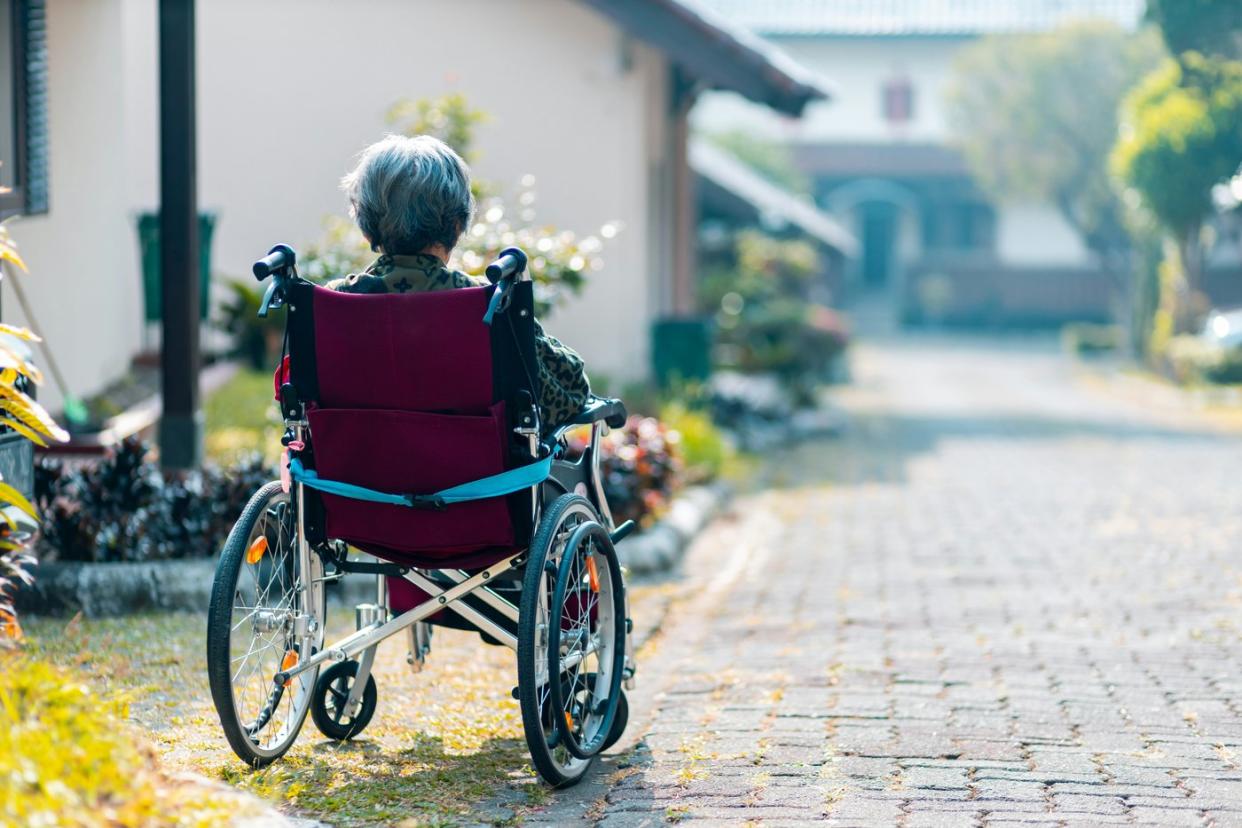Nursing home wait list in province shoots up above 1,000

The number of people on a wait list to enter a nursing home in New Brunswick has shot up over 1,000, with almost half of them in hospital, says a worried advocate.
Cecile Cassista, executive director of the Coalition for Seniors and Nursing Home Residents’ Rights, has been tracking the numbers since 2017 and has never seen them so bad.
“This is the highest ever,” she said in an interview. “We’ve seen the number hover around 800, maybe, 900, but this is very, very high. I was blown away when I got the report. I thought, ‘this can’t be right,’ it’s so awful.”
Obtained from the Department of Social Development, the figures have been inching higher in recent years. In May, for instance, the number was 993.
For June, however, it shows 1,044 on the wait list, with 513 of those people in hospital, filling beds that would otherwise be used for surgical or acute-care patients.
Breaking the 1,000-mark is significant because there are only beds for about 5,000 residents in the province’s 71 homes.
“When people languish in the hospital for more than 10 days, their health changes,” Cassista said. “There’s a lack of staff in the nursing homes causing problems, and we have a broken home care system.”
The wait list is longest in the three biggest cities, with Moncton leading the way, followed by Fredericton and Saint John.
Most smaller communities had similarly long wait times to get into a nursing home, except Bathurst, which only had one person on its list.
Cassista, who’s also a long-serving town councillor in Riverview, blamed several factors for the hold up.
For starters, she said it takes too long for the Department of Social Development to assess frail seniors in hospital before they can go to a nursing home.
“The process for the assessment needs to be dramatically streamlined.”
Second, she said workers who take care of seniors aren’t valued enough.
“If they’re not going to pay them proper wages and give them proper working conditions, you’re not going to keep the workers in that environment. I mean, they want to work with seniors, but they can’t live on the wages that they’re making. It’s pathetic.”
Home care agencies, she said, don’t offer the best wages and no benefits. As a result, not enough seniors are getting the help they need to stay in their homes longer. Instead, they become infirm and as soon as they have a medical emergency, land in hospital, waiting for a nursing home.
“As a home care worker, they might get two hours at one home and then they have to go visit the next. But they have to purchase auto insurance, fuel, all the rest. It’s better for a home care worker to work in a call centre because they’d make more money.”
Brunswick News asked for an interview with Jill Green, the minister of social development, but a spokeswoman for her department said she was unavailable.
That same spokeswoman, Rebecca Howland, confirmed Cassista’s nursing home figures.
However, she added it was important to remember the waitlist numbers frequently change. More than 150 New Brunswickers are placed in a nursing home every month.
“The department has put a significant focus on helping seniors at home for as long as they can through programs like Nursing Home Without Walls, which allows nursing homes to provide some services to seniors living in the community,” the spokeswoman wrote in an email.
“The focus on aging in place is an integral part of the Provincial Health Plan and has included efforts like special care homes partnering with the Extra-Mural Program to provide enhanced clinical services to seniors in their homes.”
The nursing homes themselves recognize the problem. Michael Keating, the interim CEO of the New Brunswick Association of Nursing Homes, said there was a shortage of several hundred employees in the sector out of about 5,200 positions in the province.
The lack of resident attendants – who perform the bulk of the work at nursing homes – and licensed practical nurses has led to about 200 beds being unfilled, he said.
“The numbers on the wait list are creeping up,” Keating confirmed. “We’re in a crisis in this province with finding enough people to come in and work.”
The executive said his association, the provincial government and the nursing homes have tried to find caregivers in other places, such as the Philippines, northern Africa, France and Belgium.
“If we could get more nursing home beds filled, it would ease the strain on some of the hospitals,” Keating said.
The Progressive Conservative government plans on building 60-bed nursing homes in Oromocto, Bathurst and in Champdoré, just north of Moncton. It will also add 30 beds at Mount Saint Joseph Nursing Home in Miramichi this fall.
Howland said in total, 270 new nursing home beds had opened since January 2023, with another 300 new beds opening over the next two years.
But Keating said it wouldn’t solve the situation outright.
“Given the worker shortage, it makes it a far more complex problem,” he said. “The problem will continue until we have the workers.”
The collective agreement between the association and the union representing most workers in nursing homes, the Canadian Union of Public Employees, expired in 2022 and is under negotiation.
The association acts on behalf of the nursing homes, but it is ultimately the provincial government that pays the wage bill and decides if the terms are affordable for taxpayers.
The contract shows that resident attendants earn between $21.74 and $23.41 an hour.
A licensed practical nurse at a nursing home earns between $25.23 and $27.16 an hour.
Cassista blamed the lack of workers on low pay.
“We’re not valuing our seniors or our care workers,” she said. “We hear a lot of lip service from government, but the action is not there.”
John Chilibeck, Local Journalism Initiative Reporter, The Daily Gleaner


